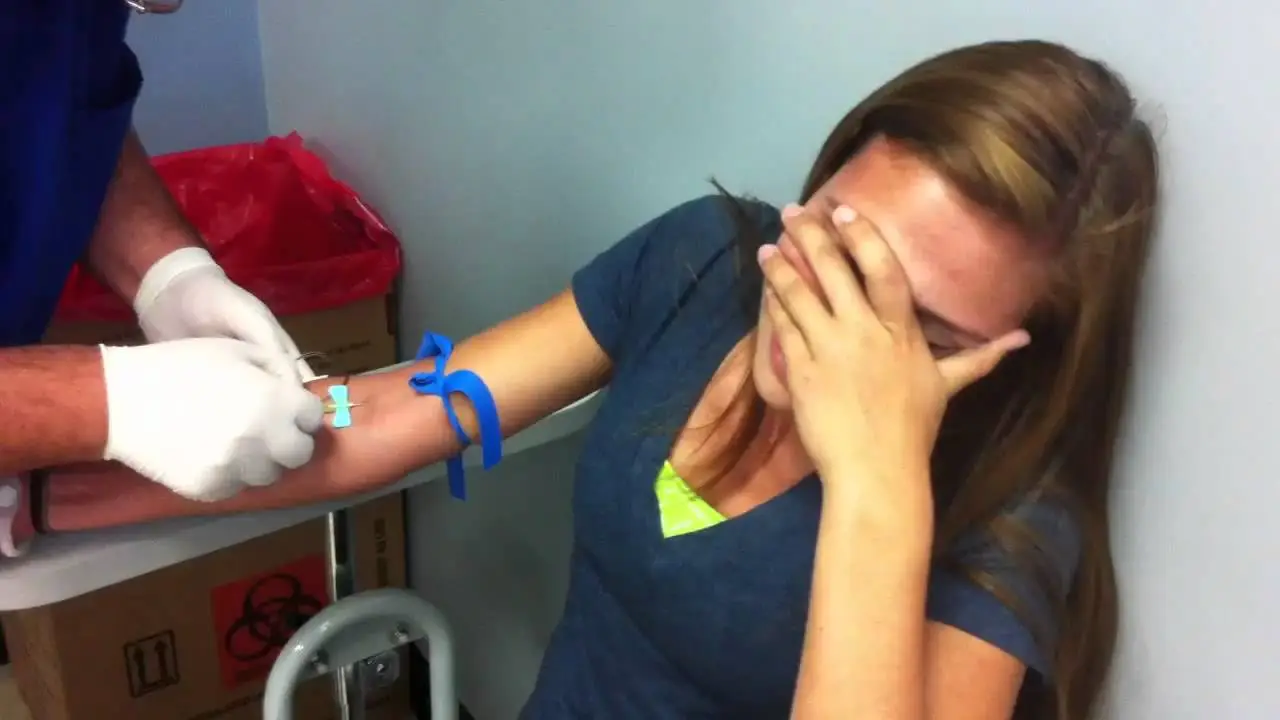Navigating through needle trepidation and anxiety associated with blood tests is a widespread concern. But what precisely provokes this fear, and how can it be managed effectively? Let’s plunge into the topic.
Identifying the Fear: Trypanophobia
A considerable portion of the population experiences Trypanophobia, the scientific term for an excessive fear of medical procedures involving injections or hypodermic needles. The mere sight of a needle can induce anxiety, heightened stress levels, and even fainting in certain individuals.
Psychological Underpinnings: Beyond the Physical Pain
It’s crucial to underline that the fear often extends beyond the physical aspect of pain. For many, the anticipation of the event, as well as past traumatic experiences, also play pivotal roles in amplifying anxiety levels.
Vicious Circle: The Anxiety-Pain Relationship
Interestingly, anxiety about pain can, in fact, enhance the perception of pain itself. This vicious circle exacerbates fear, potentially causing individuals to delay or avoid essential medical procedures.
The Broad Impact: Beyond the Individual
The ramifications of this fear are not isolated to individual suffering. At a societal level, the avoidance of medical testing due to fear can lead to undiagnosed conditions, ultimately impacting public health.
Breaking Down the Fear: Cognitive Approaches
Utilizing cognitive-behavioral therapy (CBT) has proven to be an effective strategy for managing and potentially diminishing the fear associated with needle sticks and blood draws.
Systematic Desensitization: A Step-wise Tackling
Systematic desensitization is a technique used to gradually expose individuals to the feared object (in this case, needles) in a controlled environment, often progressively moving from least to most fear-inducing scenarios.
Coping Mechanisms: Strategies to Navigate Fear
Equipping oneself with varied coping mechanisms, such as distraction techniques, relaxation exercises, and engaging in positive self-talk, can be instrumental in navigating through the anxiety elicited by needle sticks.
The Role of Medical Professionals: Ensuring Comfort
Medical professionals play a crucial role in mitigating fear by employing a patient-centric approach that acknowledges the emotional and physical comfort of individuals undergoing blood draws.
The Societal Stigma: Encouraging Open Conversations
Society often stigmatizes fear and anxiety, which might inhibit individuals from seeking help. Encouraging open conversations about mental health and fears paves the way towards collective understanding and support.
Technology to the Rescue: Painless Alternatives
Innovations such as painless needle technologies and alternative diagnostic tools could potentially bridge the gap, offering less invasive methods of conducting necessary medical tests and procedures.
Conclusion: Harmonizing Mind and Body
In an era where health is paramount, addressing the fear of getting blood drawn is instrumental in ensuring timely medical interventions and maintaining holistic well-being. While fear is a natural emotional response, adopting coping mechanisms, encouraging technological advancements, and ensuring empathetic medical practices are crucial steps towards fostering a fear-free healthcare experience. The amalgamation of understanding psychological aspects, incorporating supportive strategies, and embracing innovative technologies will pave the way towards mitigating the fear of needles, thereby enhancing individual and societal health outcomes.

